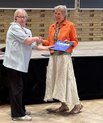New Project Collaboration at the Center for SMEs
The Center for SMEs is participating in a new project, 'Motorvej for Materialeviden'. This initiative helps small and medium-sized enterprises (SMEs) access the latest research on sustainable materials and technology—in a format that is easy to understand and apply. The project's goal is to bridge the gap between knowledge generated at universities, including Aarhus University (AU), technological service institutes (GTS institutes), and local business Councils, ensuring that material knowledge is translated into practical solutions for SMEs.

Project Background
Danish researchers have made significant advances in materials science, including chemistry, physics, nanotechnology, biotechnology, medical technology, and geology. However, this knowledge does not sufficiently reach SMEs, meaning that both they and the Danish economy miss out on valuable commercial opportunities linked to the use of more sustainable materials.
Beyond strengthening SMEs' competitiveness, this knowledge is crucial for Denmark's success in the green transition of its business sector. By providing companies with access to the latest research from universities and GTS institutes in a digestible and applicable format, the project will help SMEs navigate the transition to a greener product portfolio.
Follow-Up Research and Learning Loops
The Center for SMEs is involved in the project both to conduct follow-up research, led by Associate Professor Per Sevjvig from MGMT/Department of Management, and to share insights and tools from other projects funded by the Danish Industry Foundation that may add value to the initiative.
The research focuses on two key aspects:
- The motivations behind companies’ participation in the project.
- How many SMEs successfully integrate new, more sustainable materials into their production—and how they do it.
A central research objective is also to identify what conditions are necessary to enable and encourage SMEs to work with new, more sustainable materials.
The follow-up research is conducted throughout the project’s duration (2 x 2 years). Insights and results will be presented and discussed with project partners at semi-annual learning loops to ensure continuous project adaptation.
Tools and Methods
Local business councils play a key role in recruiting companies and motivating them to transition their product portfolios. Therefore, they are also provided with knowledge about new sustainable materials and the latest research on how business advisory services can best support companies in incorporating more sustainable materials into their business models.
In this context, the Center for SMEs has provided training based on insights and methods from a previous project Gentænk NU!, which focused on how SMEs can quickly identify, assess, prioritize, and implement new innovative initiatives.
About 'Motorvej for Materialeviden'
This national initiative was launched in January 2024 by the LINX Association with support from the Danish Industry Foundation. The primary objective is to promote the use of new and sustainable materials in SMEs, thereby strengthening Denmark’s competitiveness, advancing the circular economy, and supporting the green transition through material innovation.
The project follows a "stop-and-go" model, running over two consecutive two-year phases. The decision on whether to extend the project beyond the first two years depends on the results achieved.






